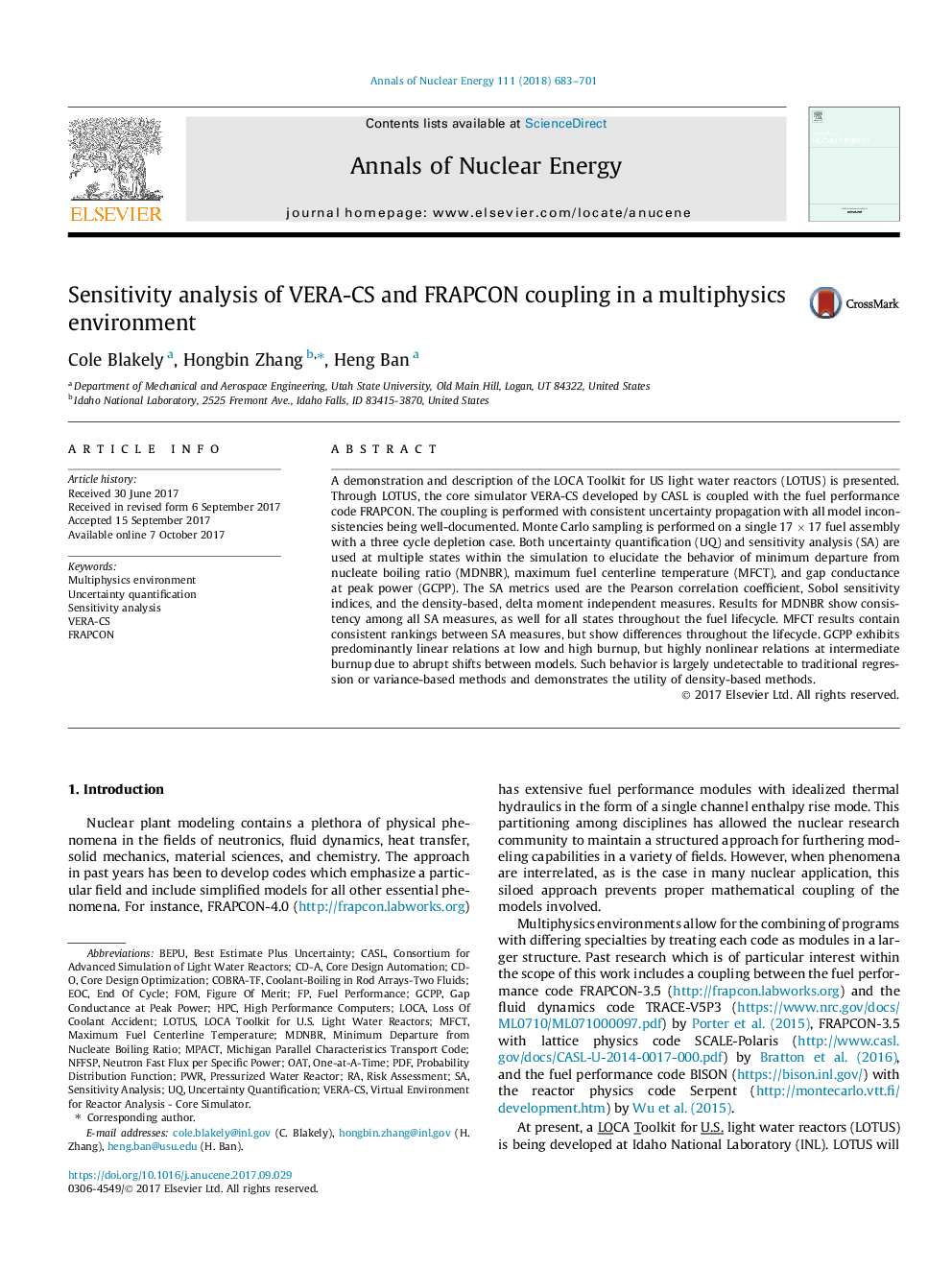| Article ID | Journal | Published Year | Pages | File Type |
|---|---|---|---|---|
| 5474836 | Annals of Nuclear Energy | 2018 | 19 Pages |
Abstract
A demonstration and description of the LOCA Toolkit for US light water reactors (LOTUS) is presented. Through LOTUS, the core simulator VERA-CS developed by CASL is coupled with the fuel performance code FRAPCON. The coupling is performed with consistent uncertainty propagation with all model inconsistencies being well-documented. Monte Carlo sampling is performed on a single 17Â ÃÂ 17 fuel assembly with a three cycle depletion case. Both uncertainty quantification (UQ) and sensitivity analysis (SA) are used at multiple states within the simulation to elucidate the behavior of minimum departure from nucleate boiling ratio (MDNBR), maximum fuel centerline temperature (MFCT), and gap conductance at peak power (GCPP). The SA metrics used are the Pearson correlation coefficient, Sobol sensitivity indices, and the density-based, delta moment independent measures. Results for MDNBR show consistency among all SA measures, as well for all states throughout the fuel lifecycle. MFCT results contain consistent rankings between SA measures, but show differences throughout the lifecycle. GCPP exhibits predominantly linear relations at low and high burnup, but highly nonlinear relations at intermediate burnup due to abrupt shifts between models. Such behavior is largely undetectable to traditional regression or variance-based methods and demonstrates the utility of density-based methods.
Keywords
Consortium for Advanced Simulation of Light Water ReactorsHPCMPACTFRAPCONBEPUFOMLocaCOBRA-TFVERA-CSCASLMDNBREOCPWRRisk assessmentLoss of coolant accidentBest estimate plus uncertaintySensitivity analysisOatPressurized Water ReactorProbability distribution functionFuel performanceLOTUSFigure of meritEnd Of CyclePdfUncertainty quantificationOne-at-a-time
Related Topics
Physical Sciences and Engineering
Energy
Energy Engineering and Power Technology
Authors
Cole Blakely, Hongbin Zhang, Heng Ban,
